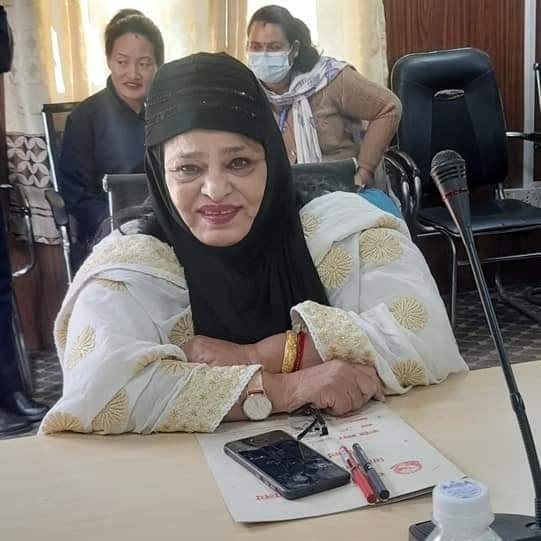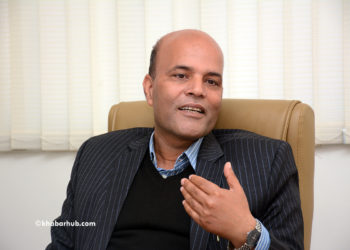KATHMANDU: Manju Sharma Ansari, a leader of the Janata Samajbadi Party (JSP) Nepal, has said that some of the party’s demands, including the establishment of the Madhes Province, proportional representation, and citizenship issues, have been partially addressed.
In a recent talk to the RSS as part of its regular series “RSS with Lawmaker,” she said the establishment of the Madhes province comprising eight out of 22 in the Terai region, implementation of a proportional representation system in all State apparatus including elections have been endorsed by the party, recognizing as its achievements.
The party’s key demands revolve around the formation of the Madhes Province by incorporating all 22 districts in the Terai and the full implementation of a proportional representation system in all State organs including elections.
Yet again the party continues to advocate for a directly elected presidential system, a complete proportional electoral system to manage election costs, and the establishment of the Madhes Province encompassing all 22 districts, according to her.
She further expressed her strong disapproval of nepotism and favoritism in the nomination of candidates under the proportional representation system. According to her, providing unfair advantages to the relatives and family members of political leaders and their aides should not be tolerated within the PR system.
Ansari, who embarked on her political journey in 2046 BS by affiliating herself with the Nepal Sadbhawana Party, currently serves as a politburo member of JSP Nepal with working stations primarily in Saptari and Rautahat. She represents the party in the House of Representatives through the PR system.
As a legislator, she sees the parliament as a place where conflicts between the ruling and opposition parties often take center stage, overshadowing its intended role in legislative matters. However, Ansari firmly believes that the House should serve as a platform to inspire citizens towards decency, discipline, and the cultivation of hope.
In her view, the parliament must uphold its image by adhering to discipline. It should not deviate from its primary purpose of addressing the concerns of the public and making efforts to address them. Ansari stressed the importance of maintaining decency by lawmakers in both presentation and performance within the House.
Furthermore, she underlined the necessity of addressing the practical needs of the people, including legislative requirements. She alleged the government of increasing the tax rates unusually which as she said have placed an undue burden on the citizens.
She entered the House anticipating to contribute to the improvement of the nation’s politics and economy, as well as to the prevention of youth migration by creating job opportunities. She acknowledged facing challenges in pursuing these goals but said she remains committed to her goals.
In recent times, the lawmaker observed that the level of corruption has significantly increased in each sphere of society. “Not only leaders, but also bureaucracy is equally responsible for rising corruption.”
She underlined the need to launch a campaign against corruption impartially to make all aware of its consequences and discourage its practice, expressing her concerns over what she said was a delay in resolving the cases relating to the registration of public land into individuals, gold scams, and so on.
The lawmaker advised the State to make much effort to create a conducive atmosphere for education and career opportunities for youths within the country. “Youth migrations for abroad studies and jobs have posed various sorts of challenges in the nation.”









Comment